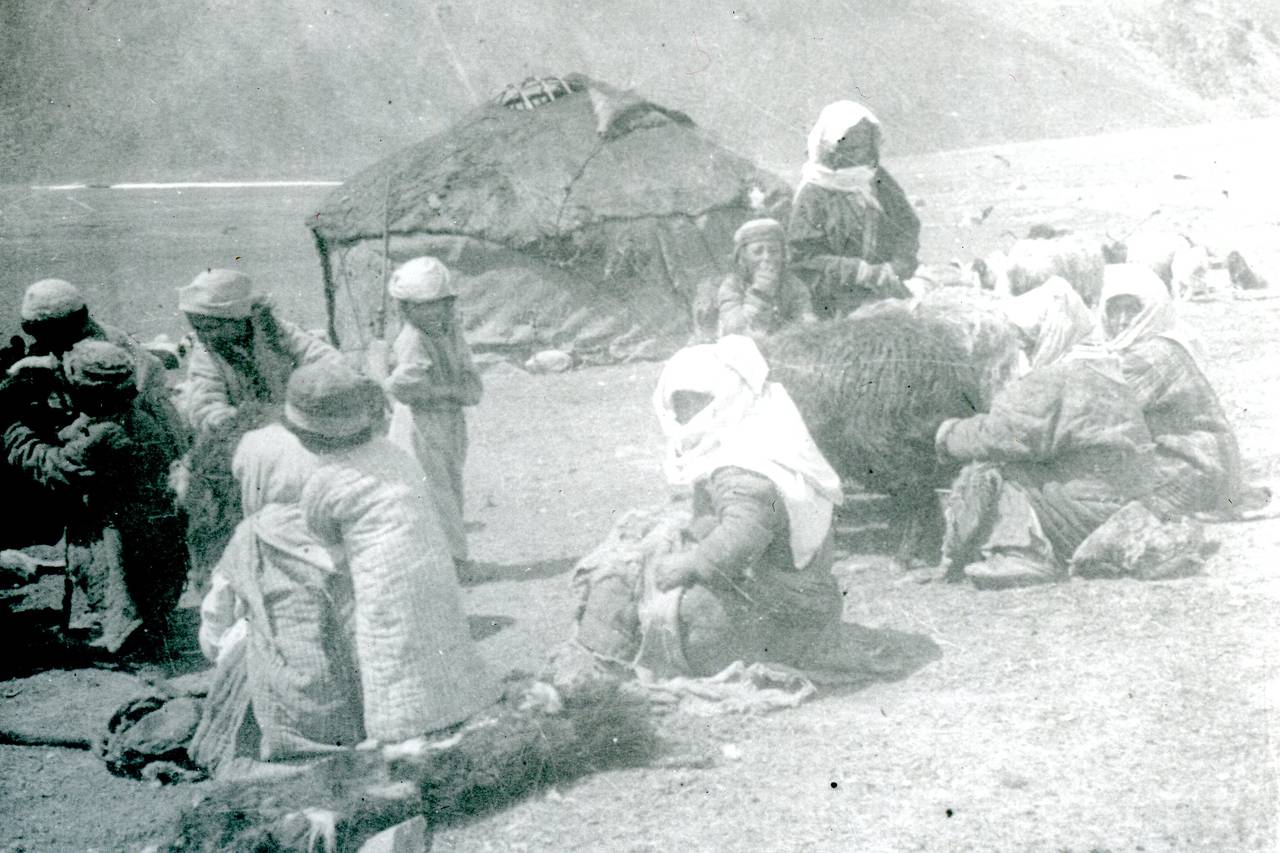Litwin
Platinum Member
maybe the worst of all crimes against humility in 20c. the Marxist - Muscovites did it of cos...
Kazakhstan: The Forgotten Famine.
"They" were looking for "kulaks," he said, the term given to anyone who appeared to be better off financially than other people. In the case of Oyil, that meant those fortunate few who owned livestock -- perhaps a dozen sheep or a few horses.
"Many of the people whose sheep and horses were confiscated had to move to inner Russia, to Karakalpakistan, and on to Iran or to Uzbekistan," Tokmurzin said. "There were rumors that life was easier there, that it was easier to survive. Those who stayed suffered but survived the winter of 1929-1930. But the worst season came in 1930-31 when the famine started."
The collectivization process hit the traditionally nomadic Kazakhs hard. They were suddenly forced to settle in one spot and, as Tokmurzin said, those who had more than just a few farm animals were treated as kulaks.
Added to that were the requisitions from Moscow that demanded huge shares of the crops so that the Soviet government could obtain hard currency and purchase machinery for the numerous factories being built.
Thousands of Kazakhs fled the famine. Tokmurzin's Uncle Shitan went to the Russian city of Orenburg and then Stalingrad (now Volgograd) to look for work and food. But he returned when the Soviet government began distributing food aid to Kazakhstan in 1933.
'Gangs Of Cannibals'
By then Kazakhstan was in chaos. "People told him the roads were lined with corpses and that wild animals, particularly wolves, were eating the corpses," Tokmurzin said. "The people said these animals might attack my uncle. More shocking were the tales of gangs of cannibals roaming the countryside."
Preparing to complete his journey back to Oyil, he was again warned that there were starving people cannibalizing others in Kolda.
Shitan decided to leave but told his nephew years later that after he departed Kolda he sensed he was being followed. He went to a nearby river and saw that several men were pursuing him. Shitan jumped in the icy river and swam across to escape his pursuers.
The devastation was monumental, but was often only discovered later.
Kazakhstan: The Forgotten Famine
Op/Ed: The Forgotten Soviet Famine

Kazakhstan: The Forgotten Famine.
"They" were looking for "kulaks," he said, the term given to anyone who appeared to be better off financially than other people. In the case of Oyil, that meant those fortunate few who owned livestock -- perhaps a dozen sheep or a few horses.
"Many of the people whose sheep and horses were confiscated had to move to inner Russia, to Karakalpakistan, and on to Iran or to Uzbekistan," Tokmurzin said. "There were rumors that life was easier there, that it was easier to survive. Those who stayed suffered but survived the winter of 1929-1930. But the worst season came in 1930-31 when the famine started."
The collectivization process hit the traditionally nomadic Kazakhs hard. They were suddenly forced to settle in one spot and, as Tokmurzin said, those who had more than just a few farm animals were treated as kulaks.
Added to that were the requisitions from Moscow that demanded huge shares of the crops so that the Soviet government could obtain hard currency and purchase machinery for the numerous factories being built.
Thousands of Kazakhs fled the famine. Tokmurzin's Uncle Shitan went to the Russian city of Orenburg and then Stalingrad (now Volgograd) to look for work and food. But he returned when the Soviet government began distributing food aid to Kazakhstan in 1933.
'Gangs Of Cannibals'
By then Kazakhstan was in chaos. "People told him the roads were lined with corpses and that wild animals, particularly wolves, were eating the corpses," Tokmurzin said. "The people said these animals might attack my uncle. More shocking were the tales of gangs of cannibals roaming the countryside."
Preparing to complete his journey back to Oyil, he was again warned that there were starving people cannibalizing others in Kolda.
Shitan decided to leave but told his nephew years later that after he departed Kolda he sensed he was being followed. He went to a nearby river and saw that several men were pursuing him. Shitan jumped in the icy river and swam across to escape his pursuers.
The devastation was monumental, but was often only discovered later.
Kazakhstan: The Forgotten Famine
Op/Ed: The Forgotten Soviet Famine

